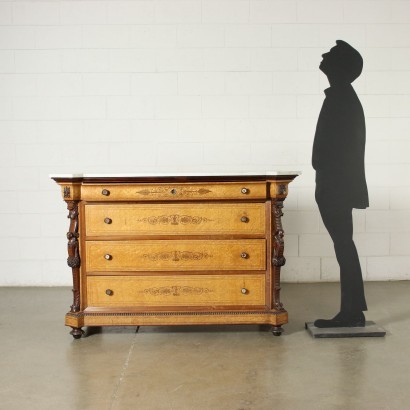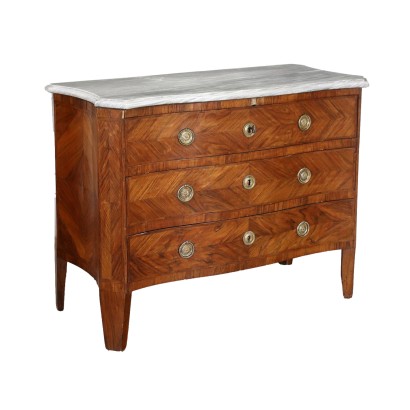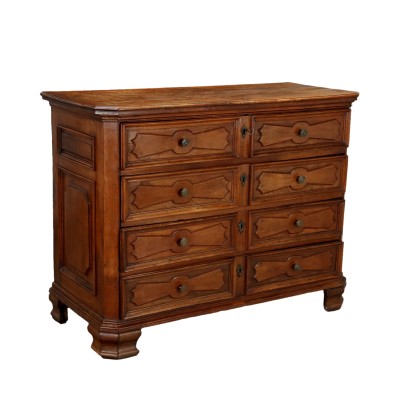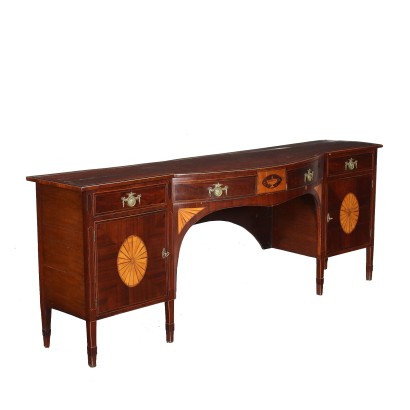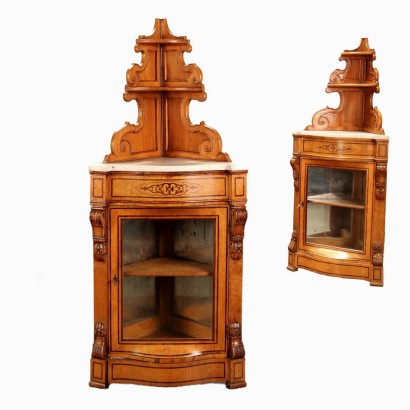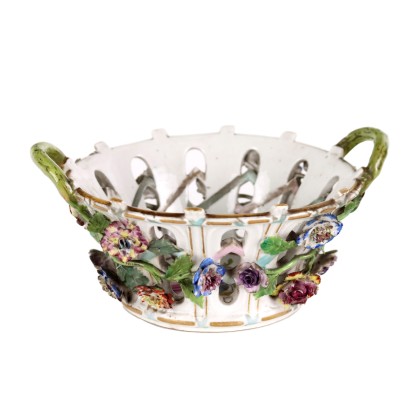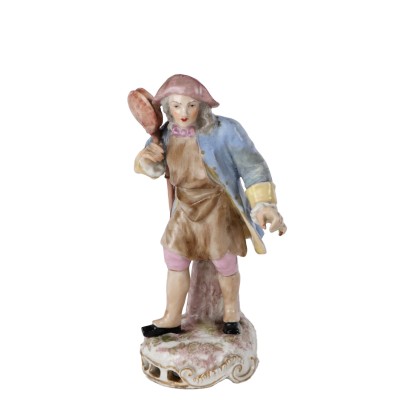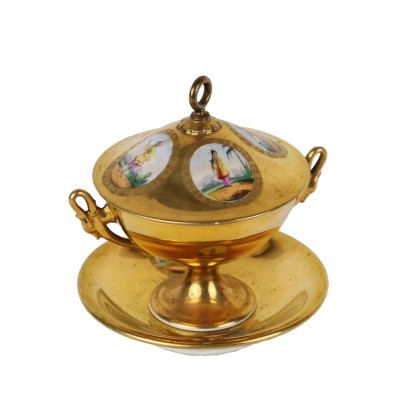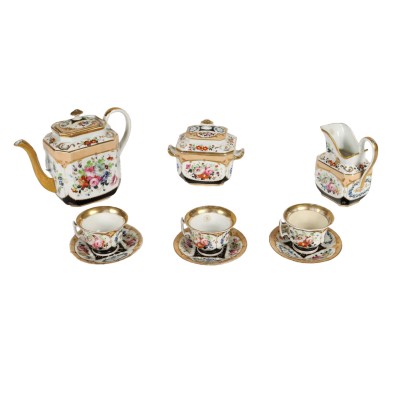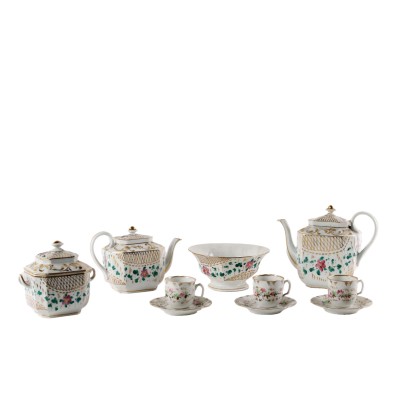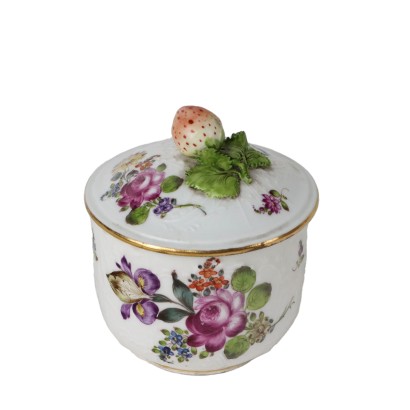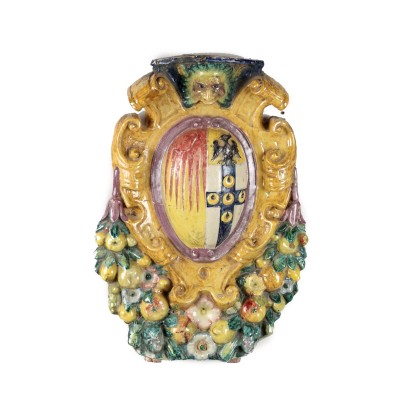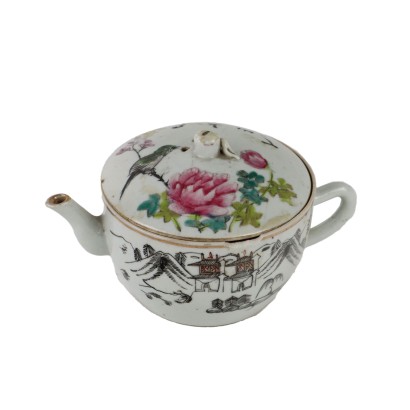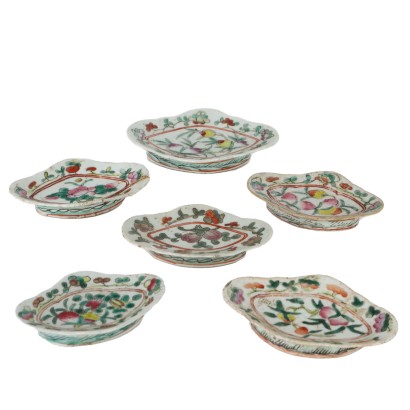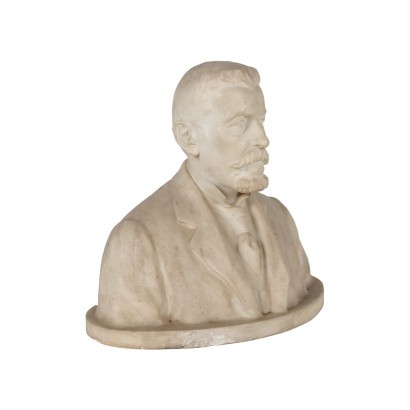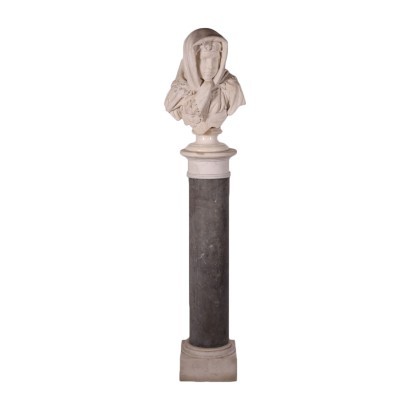Chest Of Drawers Charles X Mahogany Cherry Maple Marble Italy Mid 1800
Features
Style: Charles X (1824-1830)
Age: 19th Century / 1801 - 1900
Origin: Italy
Main essence: Maple , Cherry , Mahogany
Material: Mother of Pearl , White Marble
Description
Charles X chest of drawers supported by feet of which the front ones are spinning top shaped, on the front it has three drawers, framed between 45° uprights and finished with carvings with vegetal motifs and herms, in mahogany, to support the overhanging and groove shaped under-the-top band in which there is another drawer. The opening of the three largest drawers is possible by unlocking the secret closing mechanism, through the opening of the upper drawer. Veneered in glazed maple, it has Charles X-style threads and inlays in mahogany, cherry wood interiors, the knobs are finished with rosettes carved in mother-of-pearl and the central part in glass (some have defects); shaped top in white marble.
Product Condition:
The item shows signs of wear due to age. Any damage or loss is displayed as completely as possible in the pictures. It may require restoration and recovery of french polish. Product with a Certificate of Authenticity and Lawful Origin.
Dimensions (cm):
Height: 100,5
Width: 151
Depth: 68
Certificate issued by: Enrico Sala, expert
Additional Information
Style: Charles X (1824-1830)
Referring to a very short period, the Charles X style denomination is nonetheless significant because it allows us to detect some specific elements of the taste of the time.nIt can be considered the last phase of the stylistic research of the Restoration, in which bourgeois requests and needs are welcomed, and opens up to a taste for the Gothic.
nCharacterized by wavy and wavy lines, which oppose the more squared ones of the Empire, it mainly uses light woods with darker threads and very few metal applications.
Age: 19th Century / 1801 - 1900
19th Century / 1801 - 1900Main essence:
Maple
Hard, light wood used for inlays. It grows mainly in Austria, but it is widespread throughout the northern hemisphere, from Japan to North America, passing through China and Europe. It is one of the lightest woods ever, tending to white, it is similar to lime or birch wood. The briar is used in the production of ancient secretaires .Cherry
Obtained from prunus cerasus , a plant of oriental origin, it is a hard wood with a light and delicate color, with a reddish vein. Due to its diffusion and availability it was used in Europe in popular furniture. In cabinet making, in the seventeenth century, it was widely used in France and England for inlay work. In Italy it was very successful in Lucca. It was also very popular in the United States for the manufacture, from the late 1600s, of commonly used furniture.The dictionary of antiques: Eclecticism
Classic Monday: a sofa from the 1800s example of eclecticism




